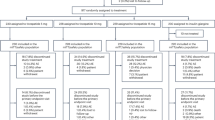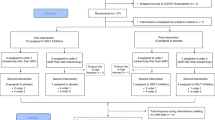Abstract
Tight glycaemic control is essential for reducing the risk of long-term diabetic complications in people with type I or II diabetes. Intensive blood-glucose control attempts to normalise both pre- and postprandial glycaemia, while avoiding severe hypoglycaemia. A basal insulin, providing a low level of insulin to cover postprandial and overnight fasting periods, is central to intensive blood-glucose control. However, hypoglycaemia, particularly nocturnal hypoglycaemia, is a major treatment-related complication of therapy with most basal insulins currently available for use in clinical practice. This is a result of pronounced peaks in absorption, which lead to inappropriate hyperinsulinaemia following evening administration, and especially poorly reproducible pharmacokinetic profiles when injected subcutaneously. Indeed, for many patients and health-care providers, concern around hypoglycaemia forms a critical barrier to the attainment of tight glycaemic control. Insulin detemir is a novel long-acting analogue of human insulin designed to overcome these practical limitations. Clinical evidence from comparative studies with NPH insulin shows that insulin detemir provides a consistent and clinically relevant reduction in hypoglycaemic risk, especially for nocturnal events, at equivalent or better levels of glycaemic control.
This is a preview of subscription content, access via your institution
Access options
Subscribe to this journal
Receive 12 print issues and online access
$259.00 per year
only $21.58 per issue
Buy this article
- Purchase on Springer Link
- Instant access to full article PDF
Prices may be subject to local taxes which are calculated during checkout



Similar content being viewed by others
References
The Diabetes Control and Complications Trial Research Group. The effect of intensive treatment of diabetes on the development and progression of long-term complications in insulin-dependent diabetes mellitus. N Engl J Med 1993; 329: 977–986.
UK Prospective Diabetes Study group. Intensive blood-glucose control with sulphonylureas or insulin compared with conventional treatment and risk of complications in patients with type 2 diabetes. Lancet 1998; 352: 837–853.
The DCCT Research Group. Epidemiology of severe hypoglycaemia in the Diabetes Control and Complications Trial. Am J Med 1991; 90: 450–459.
The DCCT Research Group. Adverse events and their association with treatment regimens in the Diabetes Control and Complications Trial. Diabetes Care 1995; 18: 1415–1427.
The DCCT Research Group. Implementation of treatment protocols in the Diabetes Control and Complications Trial. Diabetes Care 1995; 18: 361–375.
Reichard P, Nilsson B-Y, Rosenquist U . The effect of long-term intensified insulin treatment on the development of microvascular complications of diabetes mellitus. N Engl J Med 1993; 329: 304–309.
Mecklenburg RS, Benson EA, Benson JW Jr, Fredlund PN, Guinn T, Metz RJ, Nielsen RL, Sanner CA . Acute complications associated with insulin infusion pump therapy: report of experience with 161 patients. JAMA 1984; 252: 3265–3269.
Cryer P . Hypoglycaemia is the limiting factor in the management of diabetes. Diabetes Metab Res Rev 1999; 15: 42–46.
Korytowski M . When oral agents fail: practical barriers to starting insulin. Int J Obes Relat Metab Disord 2002; 26 (Suppl 3): S18–24.
Allen KV, Frier BM . Nocturnal hypoglycaemia: clinical manifestations and therapeutic strategies towards prevention. Endocr Pract 2003; 9: 530–543.
Heise T, Nosek L, Ronn BB, Endahl L, Heinemann L, Kapitza C, Draeger E . Lower within-subject variability of insulin determir in comparison to NPH insulin and insulin glargine in people with type 1 diabetes. Diabetes 2004; 53: 1614–1620.
Pieber T, Plank J, Goerzer E, Sommer R, Wutte A, Sinner F, Bodenlenz M, Endahl L, Draeger E, Zdravkovic M . Duration of action, pharmacodynamic profile and between-subject variability of insulin detemir in subjects with type 1 diabetes. Diabetes 2002; 51: A53.
Russell-Jones D, Draeger E, Simpson R . Effects of once daily insulin detemir or NPH insulin on blood glucose control in people with type 1 diabetes using a basal-bolus regimen. Clin Ther 2004; 26: 724–736.
Standl E, Lang H, Roberts A . The 12-month efficacy and safety of insulin detemir and NPH insulin in basal bolus therapy for the treatment of type 1 diabetes. Diabetes Technol Ther, (in press).
Vague P, Selam J-L, Skeie S, De Leeuw I, Elte JW, Haahr H, Kristensen A, Draeger E . Insulin detemir is associated with more predictable glycemic control and reduced risk of hypoglycemia than NPH insulin in patients with type 1 diabetes on a basal-bolus regimen with premeal insulin aspart. Diabetes Care 2003; 26: 590–596.
De Leeuw I, Vague P, Selam J-L, Skeie S, Lang H, Draeger E, Elte JWF . Insulin detemir used in people with type 1 diabetes is associated with a lower risk of nocturnal hypoglycaemia and less weight gain over 12 months in comparison to NPH insulin. Diabetes Obes Metab, (in press).
Heinemann L, Sinha K, Weyer C, Loftager M, Hirschberger S, Heise T . Time-action profile of the soluble, fatty acid acylated, long-acting insulin analogue NN304. Diabetes Med 1999; 16: 332–338.
Hermansen K, Madsbad S, Perrild H, Kristensen A, Axelsen M . Comparison of the soluble basal insulin analog insulin detemir with NPH insulin. Diabetes Care 2001; 24: 296–301.
Kølendorf K, Pavlic-Renar I, Santeusanio F, Philotheou A, Gall M-A, Heller S . Insulin detemir is associated with lower risk of hypoglycaemia compared to NPH insulin in people with type 1diabetes. Diabetes 2004; 53 (Suppl 2): A130.
The DCCT Research Group. Effect of intensive diabetes treatment on the development and progression of long term complications in adolescents with insulin dependent diabetes mellitus: Diabetes Control and Complications Trial. J Paediatr 1994; 125: 177–188.
Rosenbloom AL, Schatz DA, Krischer JP, Skyler JS, Becker DJ, Laporte RE, Libman I, Pietropaolo M, Dosch HM, Finberg L, Muir A, Tamborlane WV, Grey M, Silverstein JH, Malone JI . Therapeutic controversy: prevention and treatment of diabetes in children. J Clin Endocrinol Metab 2000; 85: 494–522.
Ryan C, Vega A, Drash A . Cognitive deficits in adolescents who developed diabetes early in life. Pediatrics 1985; 75: 921–927.
Rovet J, Ehrlich RM, Hoppe M . Intellectual deficits associated with early onset of insulin dependent diabetes mellitus in children. Diabetes Care 1987; 10: 510–515.
The Diabetes Control and Complications Trial Research Group. Hypoglycaemia in the diabetes control and complications trial. Diabetes 1997; 46: 271–286.
Robertson K, Scholne E, Gucev Z, Mordhorst L, Tamer SC, Gall M-A, Ludvigsson J . Benefits of insulin detemir over NPH insulin in children and adolescents with type 1 diabetes: lower and more predictable fasting plasma glucose and lower risk of nocturnal hypoglycaemia. Diabetes 2004; 53 (Suppl 2): A144.
Hermansen K, Fontaine P, Kukolja KK, Peterkova V, Leth G, Gall MA . Basal-bolus therapy with insulin analogues (insulin detemir and insulin aspart) versus traditional human insulins (NPH insulin and regular human insulin) in patients with type 1 diabetes. Diabetologia 2004; 47: 622–629.
Haak T, Tiengo A, Draeger E, Suntum M, Waldhäusl W . Lower within-subject variability of fasting blood glucose and reduced weight gain with insulin detemir compared with NPH insulin in patients with type 2 diabetes. Diabetes Obes Metab, (in press).
Pieber TR, Grill V, Kristensen A, Draeger E . Timing of dose-administration of insulin detemir is flexible and results in lower and less variable glucose levels and less weight gain than NPH insulin. Diabet Med, (in press).
Home P, Bartley P, Russell-Jones D, Hanaire-Broutin H, Heeg JE, Abrams P, Landin-Olsson M, Hylleberg B, Lang H, Draeger E, Study to Evaluate the Administration of Detemir Insulin Efficacy, Safety and Suitability (STEADINESS) Study Group. Insulin detemir offers improved glycaemic control compared to NPH insulin in people with type 1 diabetes: a randomized clinical trial. Diabetes Care 2004; 27: 1081–1087.
Raslova K, Bogoev A, Raz I, Lethh G, Gall M-A . Insulin detemir and insulin aspart: a promising basal-bolus regimen for type 2 diabetes. Diabetes Res Clin Pract, (in press).
Author information
Authors and Affiliations
Corresponding author
Rights and permissions
About this article
Cite this article
Mathieu, C. Can we reduce hypoglycaemia with insulin detemir?. Int J Obes 28 (Suppl 2), S35–S40 (2004). https://doi.org/10.1038/sj.ijo.0802748
Published:
Issue Date:
DOI: https://doi.org/10.1038/sj.ijo.0802748
Keywords
This article is cited by
-
In vivo and in vitro evaluation of the effects of Urtica dioica and swimming activity on diabetic factors and pancreatic beta cells
BMC Complementary and Alternative Medicine (2016)
-
Insulin detemir: improving the predictability of glycaemic control
International Journal of Obesity (2004)



